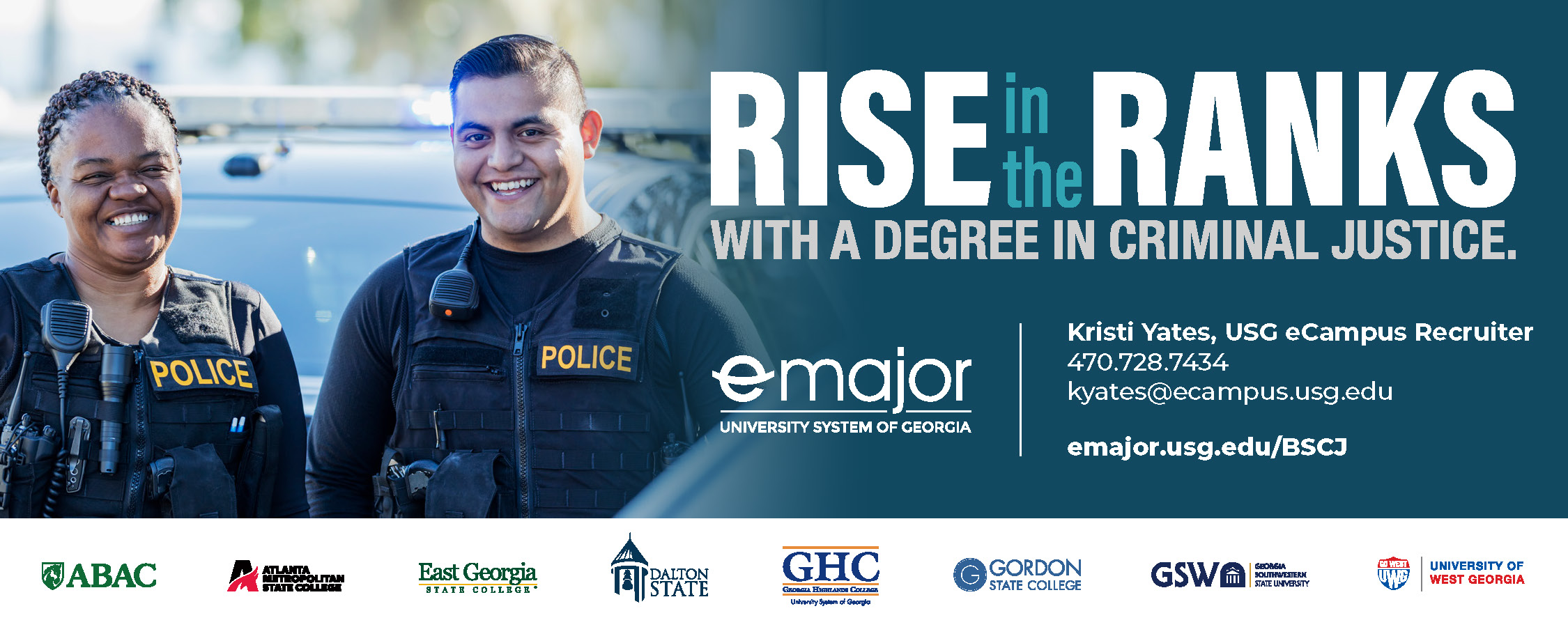
Staff Development
Spring | 2025

Command Training
Spring | 2025
Law enforcement leaders are facing greater challenges than any time in history. In today’s rapidly evolving environment, it is critical for law enforcement leaders continuously provide developmental opportunities to all their officers and staff. The most professionally operated police agencies prepare individuals prior to being promoted or transferred to their next assignment. Unfortunately, this approach is oftentimes the exception to how most agencies prepare their staff. Using this approach provides several benefits.
Preparing individuals prior to being placed in a new assignment enables individuals to better understand what is required of them and how to effectively perform at a higher level. As ‘all ships rise with a rising tide’, staff are better equipped to serve in their current assignment and agencies experience a smoother continuity of operations as they transition into new assignments. Ultimately, this results in an improved organizational culture, outstanding service delivery, greater staff retention, and an exceptional brand image.
The purpose of this article is to provide an overview of command level training programs that are available for law enforcement agencies. All these programs have outstanding curriculums. In addition, interactions between classmates enhances the experience through exchanges of proven ideas, perspectives, and concepts.
Georgia Association of Chiefs of Police, Chief Executive Training Program (CETP)
The Chief Executive Training Program is designed to equip police leaders in Georgia with the foundational skills needed to address evolving challenges. In addition, it provides an opportunity for attendees to develop a more global perspective enables them to conduct more comprehensive assessments of and responses to issues. Because of this, a significant number of agencies require command staff to complete this training with the goal of exposing them to the expectations and challenges of serving as a chief executive.
Topics covered in the course include:
- Conducting SWOT Analysis
- Role and Responsibilities of the Police Chief
- Engaging with the Community
- Directing the Hiring Process
- Data Collection and Usage
- Developing and Implementing Operational Procedures
- Georgia POST Standards
- Political and Practical Realities
- Leadership and Management Role of the Chief
- Budgeting
- Evaluating and Documenting Employee Performance
- Risk Management
- Developing Staff
- Media Relations
- Conflict Resolution
- Legislative Updates
- Managerial Liability
- Social Media
- State Certification Program and Processes
- Open Records
- Human Resources
Georgia Law Enforcement Command College
The Command College consists of 12 proprietary courses delivered in a hybrid, 3-week format, the foundation of which is a 6-day face-to-face format. There are seven core classes and five electives (13 to choose from).
Applicants must be employed by a public safety agency (Federal, State, County, Municipal, in-state/out-of-state) and possess a bachelor’s degree from a SACSCOC-accredited or similarly recognized school.
Graduation requires a 3.0 GPA. Applicants must submit a nomination form signed by their agency head or designee along with a resume, POST transcripts, letter of intent, and unofficial school transcripts. Applicants with a rank below Captain must have a minimum of two letters of recommendation (other than the chief). Successful students will meet the Georgia POST Executive Certification requirements and may complete the POST Supervision and Management certification with specific course completion.
- Each course receives 40 hours of Georgia POST Executive Certification training.
- Each instructor possesses POST Instructor certification.
- Asset forfeiture funds may be used for this training
Command College – Certificate of Public Safety (Professional Management Program)
The Certificate of Public Safety, which is often referred to as the Professional Management Program (PMP), is an exclusive undergraduate program.
- PMP consists of ten classes offered every other month (1 week of independent readings, 1 week of face-to-face, 1 week for project completion).
- Each graduate receives 40 hours of POST training credits and 30 hours of upper-level college credits
- Completion meets the POST Certification requirements for Supervision and the training requirements for Management Certification
- The HOPE Grant covers the tuition for this program. Asset forfeiture funds may be used for this training.
- Participation in the PMP is restricted to sworn and non-sworn public safety employees. This includes, but is not limited to, code enforcement, court employees, animal control, emergency management, communications, city/county managers, fire, EMS, and corrections.
- All credits will transfer into bachelor’s programs
- The PMP program offers three tracks – Law Enforcement, Corrections, and Fire/EMS
Currently there are 18 approved sites and four in the process of receiving approval across Georgia
- Columbus
- Tifton
- Chatham County Sheriff’s Office
- Augusta, Ga. Cyber Center
- Athens/Clarke Police Department
- Rockdale County Sheriff’s Office
- Georgia DOC Metro Transition Center (Atlanta)
- Stockbridge Police Department
- Georgia Tech University
- Cobb County Department of Public Safety
- Cherokee County Sheriff’s Office
- Floyd County Emergency Management
- Gwinnett County Police Department
- Ga. DOC Regional Office – Leesburg
- Ga. DOC Regional Office – Reidsville
- Ga. DOC – Milledgeville
- Spalding County Sheriff’s Office
- Muscogee County Sheriff’s Office
- Sites waiting for approval include: Alpharetta, Forsyth, Brunswick, and Warner Robins/Ft. Valley.
Federal Bureau of Investigation Command Training
The Federal Bureau of Investigation provides four executive training programs including the FBI National Academy, National Executive Institute, Law Enforcement Executive Development Seminar, and the National Command Course. Each program focuses on four common pillars including: Identifying Emerging Trends, Enhancing Partnerships, Promoting Wellness, and Seeking Innovation.
FBI National Academy
The FBI National Academy is a 10-week residential program for police leaders from around the world. Attendees must attend six courses that include a mandatory physical fitness and leadership course as well as four elective classes. Program graduates receive 18 semester hours of academic work from the University of Virginia towards a bachelor’s or master’s degree.
Airfare to/from the FBI Academy as well as lodging and meals are provided. All other expenses including uniform costs, which averages around $200, is the student’s responsibility. Optional expenses for trips to Philadelphia and New York range from $600 – $900.
Minimum Requirements to Attend the National Academy
- Be of good moral character and reputation and have a record of outstanding service in the law enforcement profession.
- Be nominated by the head of their agency.
- Be at least 25 years of age.
- Be a regularly appointed, full-time law enforcement officer (LEO) of a duly constituted law enforcement agency of a municipality, county, territory, tribal, or state government and have at least 5 years of full-time law enforcement experience without significant interruption.
- Hold the rank of lieutenant or higher.
- Be medically cleared for strenuous physical exertion and regular participation in physical training. Candidates must demonstrate the ability to complete a 1-mile run within the established time limits for males (less than 10 minutes) and females (less than 11:30 minutes).
- Must possess a college degree or at least 60 college credit hours.
- May not be enrolled in any additional full-time academic program while attending the NA.
- Continue to receive salaries while attending the NA.
- Affirm, as a condition of attending the NA, that the exclusive rights and remedies for any injury suffered while attending the FBI National Academy must be solely liable under their department’s worker’s compensation insurance program.
- Affirm that they will remain in law enforcement for a minimum of 3 years following graduation from the NA.
- Be able to speak, read, write, and comprehend the English language in an academic environment at the collegiate level.
National Executive Institute
The National Executive Institute is a leadership development program for executives of domestic and international law enforcement agencies with more than 500 officers. Courses are scheduled into three, one-week blocks with approximately 50 participants. Since the NEI does not have an established curriculum, program managers use experts to provide focused instruction on relevant topics and facilitate group discussions to create a variety of solutions.
Individuals must be nominated to participate in NEI. Lodging, provided meals, and travel expenses for local and state representatives are paid by the FBI.
FBI Law Enforcement Executive Development Seminar (LEEDS)
The FBI LEEDS program is hosted annually for officers in Georgia. The program is a 40-hour course covering a variety of executive training topics including: Leadership, Legal Issues, Managing Critical Incidents, Interacting with Media Representatives, Gaining Community Support, Change Management, Organizational Ethics, Crisis Management, Motivational Techniques, and other current issues.
Typically, 100 persons will attend each session. The target audience ranges from the rank of Lieutenant to Chief Executive. Instructors include FBI Academy staff, Atlanta FBI instructors as well as other law enforcement instructors. The Georgia Association of Chiefs of Police will award 40 hours of Executive Credit for chiefs who successfully complete the course.
National Command Course (NCC)
The National Command Course is designed for chief executives from agencies with fewer than 50 sworn officers. Each session is one-week long and held two times a year. Instruction focuses on one of four themes including Emerging Trends, Enhancing Partnerships, Promoting Wellness and Seeking Innovation. Eligibility to attend NCC is limited individuals serving as the chief executive officer of a full-service law enforcement agency.
To apply for an FBI executive leadership training program, agencies should contact the FBI Training Coordinator or liaison specialist at the nearest FBI field office.
Northwestern University Center for Public Safety
School of Police Staff and Management (SPSC)
The School of Police Staff and Command is a 10-week program for senior law enforcement leaders and managers. The course curriculum utilizes a combination of lectures, practical application processes, and student interactions to foster enhanced learning opportunities.
The curriculum includes:
- Budgeting
- Communications & Media Relations
- Contemporary Policing
- Critical Incidents
- Decision Making
- Employee Relations
- Employment Law
- Evaluating Products & Services
- Executive Image
- Human Resources & Employee Discipline
- Leadership Principles
- Officer Wellness
- Organizational Behavior
- Strategic Planning & Policies
- Performance Appraisals & Job Design
- Project Management
- Recruiting
- Resource Allocation
- Statistics
- Traffic
In addition, students must conduct a research project based on an issue their department is experiencing. Each student is expected to compose ‘an objective, well-documented’ study outlining the issue as well as their findings and recommendations with the expectation of implementing the plan upon their graduation.
Candidates must have two years of supervisory experience.
On-Ground Tuition: $4400+ (varies by location) | Online Tuition: $4,200
Supervision of Police Personnel (SPP)
This two-week program is designed to provide newly appointed supervisors with the foundational skills needed to effectively manage day-to-day issues with staff and the public. Course topics include:
- Accountability
- Communication
- Critical Incidents
- Decision Making
- DiSC® Personal Profile System
- Discipline & Managing Problem Employees
- Ethics & Professionalism
- Key Elements of Dynamic Leadership
- Motivational Principles
- Officer Wellness
- Performance Management
- Planning
- Procedural Justice
- Managing Diversity
SPP is offered on-line or in-person at different locations throughout the year.
Executive Management Program (EMP)
This 3-week seminar is designed to provide senior and experienced mid-level managers with the skills to effectively examine and address critical issues agencies are experiencing.
Topics include:
- Critical Incident Command
- Crime Prevention Strategies
- Information Technology
- Data Collection & Profiling
- Discipline & Accountability
- Ethics
- Executive Image
- Human Resources
- Leadership & Leading in a Politically Charged Environment
- Media Relations
- Officer Recruitment & Selection, Assessment & Promotion
- Risk Management
For more information regarding these programs, go to https://sps.northwestern.edu/center-for-public-safety/.
University of Louisville, Southern Police Institute
Administrative Officers Course (AOC)
The 12-week Administrative Officers Course is designed for individuals who are or will be assigned to middle and upper management positions. Graduates develop the knowledge and skills to:
- Manage and direct an agency’s staff and other resources
- Effective address complicated administrative issues
- Identify problems, evaluate options, and create solutions
- Evaluate the efficiency and effectiveness of department operations
- Apply current law enforcement philosophies and practices
- Understand and employ contemporary legal responsibilities
This course is provided at the University of Louisville. Tuition is $7,891 for undergraduates and $7,906 for graduate students.
Command Officer Development Course (CODC)
This course is designed for personnel assigned to mid and upper-level positions. Classes are held in two-week sessions over five months.
Topics include:
- Interpersonal Communication
- Organizational Communication
- Organizational Leadership
- Problem Solving
- Evidence-Based Policing
- Crime and Intelligence Analysis
- Intelligence-Led Policing
- Policy Formulation and Evaluation
- Organizational Performance Management
- Budgeting
- Personnel Development and Assessment
- Legal Liability
- Strategic Management for 21st Century Policing
Graduates acquire the skills and abilities to:
- Assist with creating strategic initiatives
- Enhance communications within the organization
- Create alternative solutions
- Perform a strategic analysis
- Develop operational processes (i.e. policies and procedures)
- Identify, develop, and assess risk management strategies
- Evaluate department operations
Tuition: $3,800





GACP PARTNERS


















